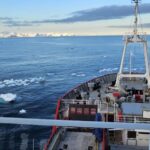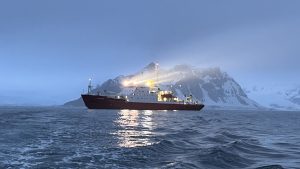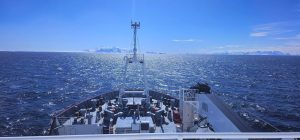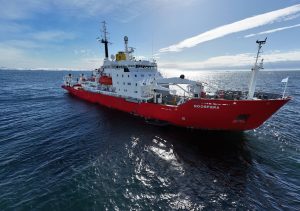“Noosfera” delivered a new team of scientists to the Vernadsky station
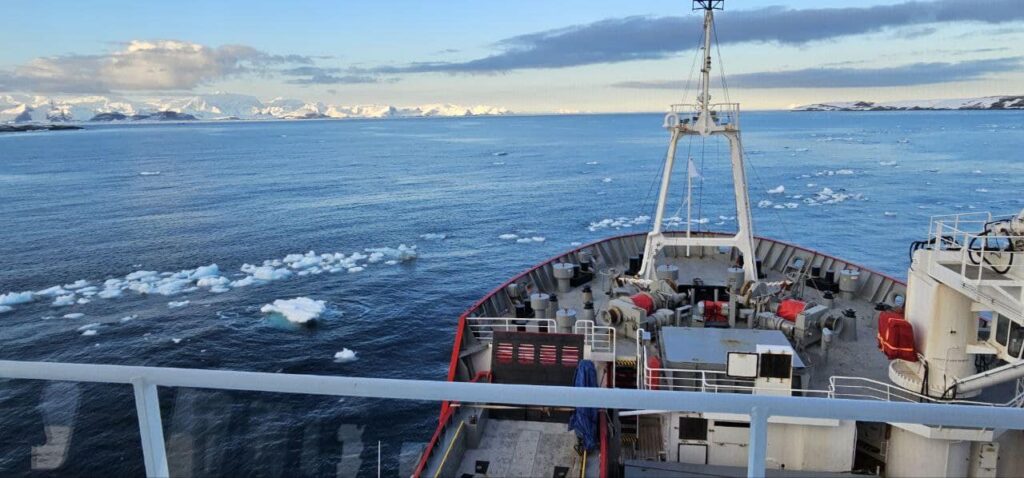
The research icebreaker “Noosfera” delivered the team of the 28th Ukrainian Antarctic Expedition to the “Akademik Vernadskyi” station.
A ship with a new team of scientists arrived at the Vernadsky station. The captain of the icebreaker Oleksandr Hryshko reported this on March 27, the National Antarctic Scientific Center reported.
The journey from the Chilean port of Punta Arenas to the station took 5 days. The icebreaker was passing through the world’s stormiest Drake Passage.
In the coming days, two important missions will take place at the Vernadsky station.
The first is the unloading of the ship, because a huge supply of food, various things and fuel for the whole year was delivered on it. Since the topography of the bottom does not allow the icebreaker to dock near the island, all cargo will be transported by small boats. The second mission is the change of annual expeditions. Scientists and specialists from the 27th UAE, who worked at the station for a year, will hand over their work to their colleagues from the 28th UAE.
Then there will be the traditional transfer of station between expeditions, and the winterers on the 27th will go home, while the participants on the 28th will stay on for the year.
Their main tasks include carrying out measurements and research in three areas: geophysics, meteorology and biology, as well as supporting the life of the station.
The Ukrainian icebreaker “Noosfera” has been operating in Antarctica for the second season. At the end of last year, the ship left South Africa for King George Island, where it delivered an expedition and cargo for the Polish Antarctic station “Artstowski”. From there, the icebreaker arrived at the “Akademik Vernadskyi” station and delivered to it the participants of the technical seasonal expedition, who are currently completing the urgent tasks of modernizing the station. Then the ship reached Chile and waited for the team of the 28th UAE, with which it successfully returned to the Antarctic.
